What type of benchtop is best?
Changing your benchtop can completely transform your kitchen. If your cabinets are still in good shape then there is no need to do a complete refurbishment. If your cabinets are in good shape but the drawer and door fronts are dated then there are options to just change those. Talk to us before leaping into changing everything.
But what type of benchtop is best? Natural, engineered or ultracompact stone? Or should you go for acrylic solid surface? There are benefits to all!
Isn’t natural stone hard to take care of? Nope not any more! The modern sealants used these days mean you can treat natural stone the same as engineered. Mop up anything corrosive such as lemon juice or anything highly coloured such as turmeric within half an hour. Some softer natural stones are more prone to chipping and breaking along veining but this is something you can ask about and choose durability if necessary.
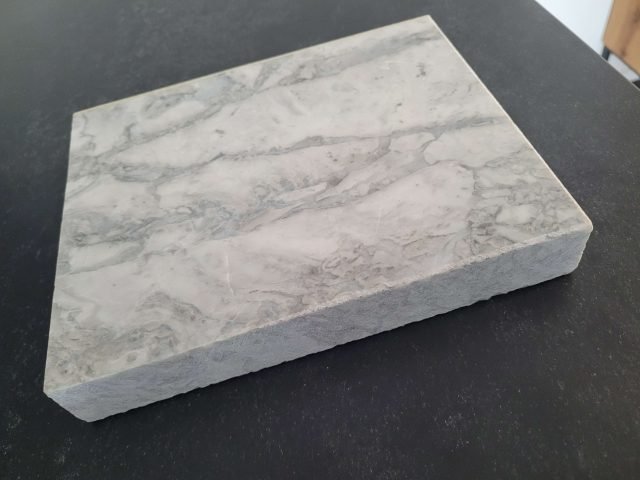
With engineered stone what you order is exactly what you get since all slabs are the same. Engineered stone comes in a huge variety of colour and patterns. It can even be found in solid duck egg blue or green if you desire. The downsides are the same as with natural stone in regard to corrosion and staining, make sure you mop it up within about half an hour. Newer engineered stone is coming through with some UV resistant colours that can be used outside. A major downside of engineered stone is that working with it is risky to our fabricators’ lungs due to a condition called silicosis. This is what coal miners used to get. We have ways to mitigate the risk but it’s definitely not our first choice for our workers. Most brands are working towards low silica options which are our preference to work with for safety reasons. Cheaper brands are all high silica. The main low-silica option currently is Silestone from Cosentino. https://www.cosentino.com/en-nz/silestone/
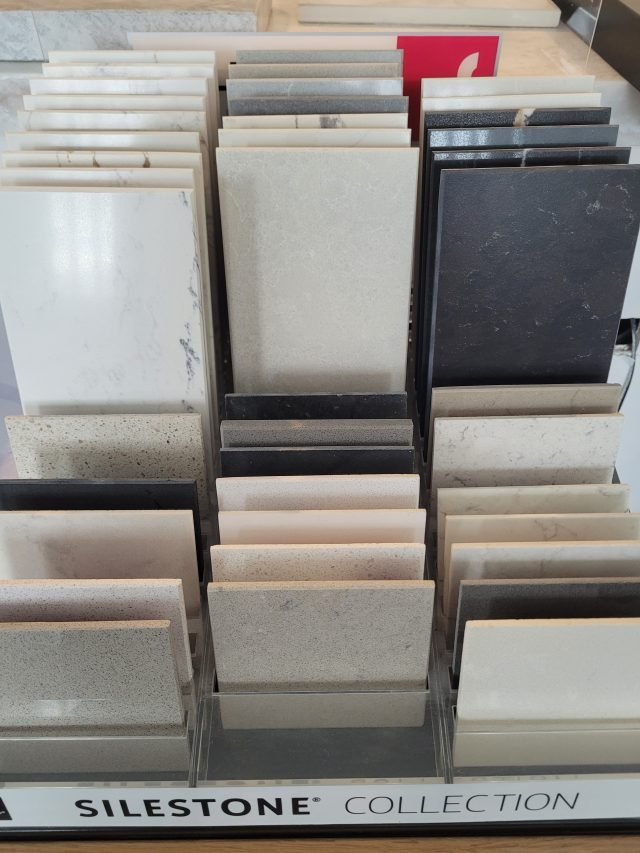
Ultracompact surfaces come with a slightly higher price tag but the benefits justify the spend. These are products such as Dekton; large format porcelain tile such as Laminam, Florim or Ascale; and Neolith. These surfaces can be used inside and out, on floors, walls and benches. They are naturally more resistant to chipping, cracking and heat. If using for your kitchen benchtop, there is no problem putting your pot straight from the oven or hob straight on to the surface which is so convenient! With Ascale large format porcelain they go one step further by being able to mount your convection hob underneath the porcelain for the sleekest look yet! Dekton is so hard that you can literally sharpen your knives on it.
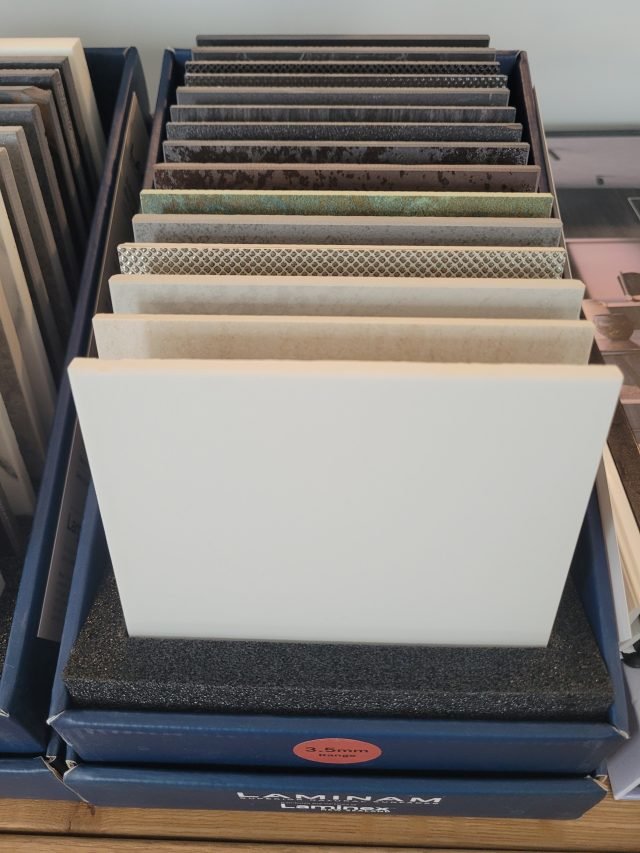


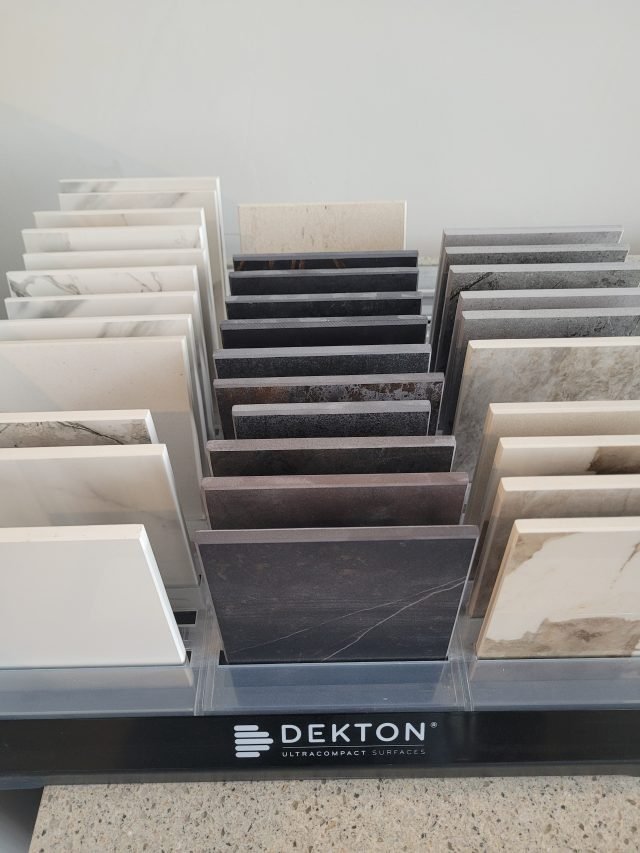
But it’s not all about stone. Acrylic solid surface is what you go to for sexy curves and seamless look. Modern solid surface even comes with veined options which gives you the look of stone with the flexibility of acrylic. We are able to heat solid surface and bend it in a process called thermoforming. This means it is the surface of choice for benches with round ends or curves. Yes solid surface scratches more easily, but after a quick repolish it can be brought back to as-new.
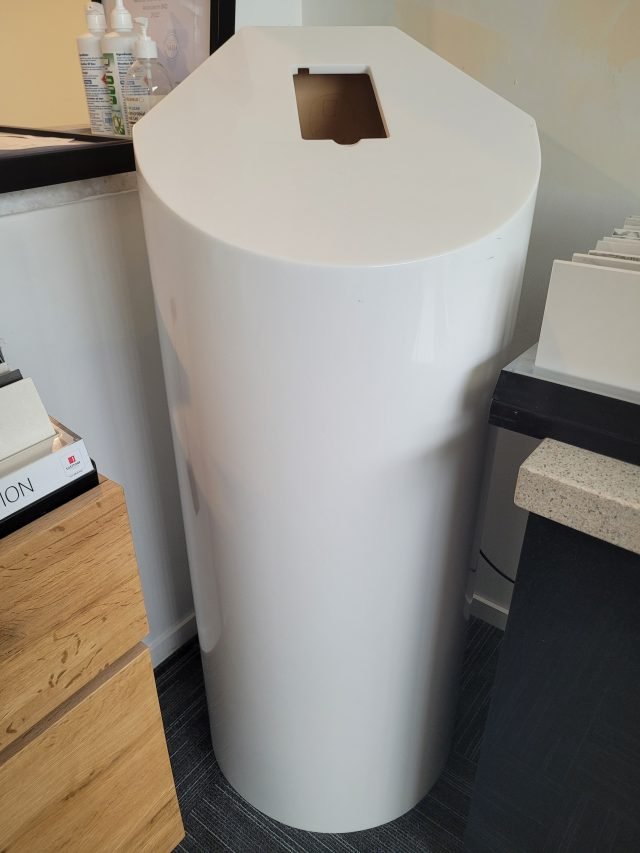
Come and chat with us if you have questions, if we don’t know the answer – which after 30 years in the business still can happen – we will find out for you!
